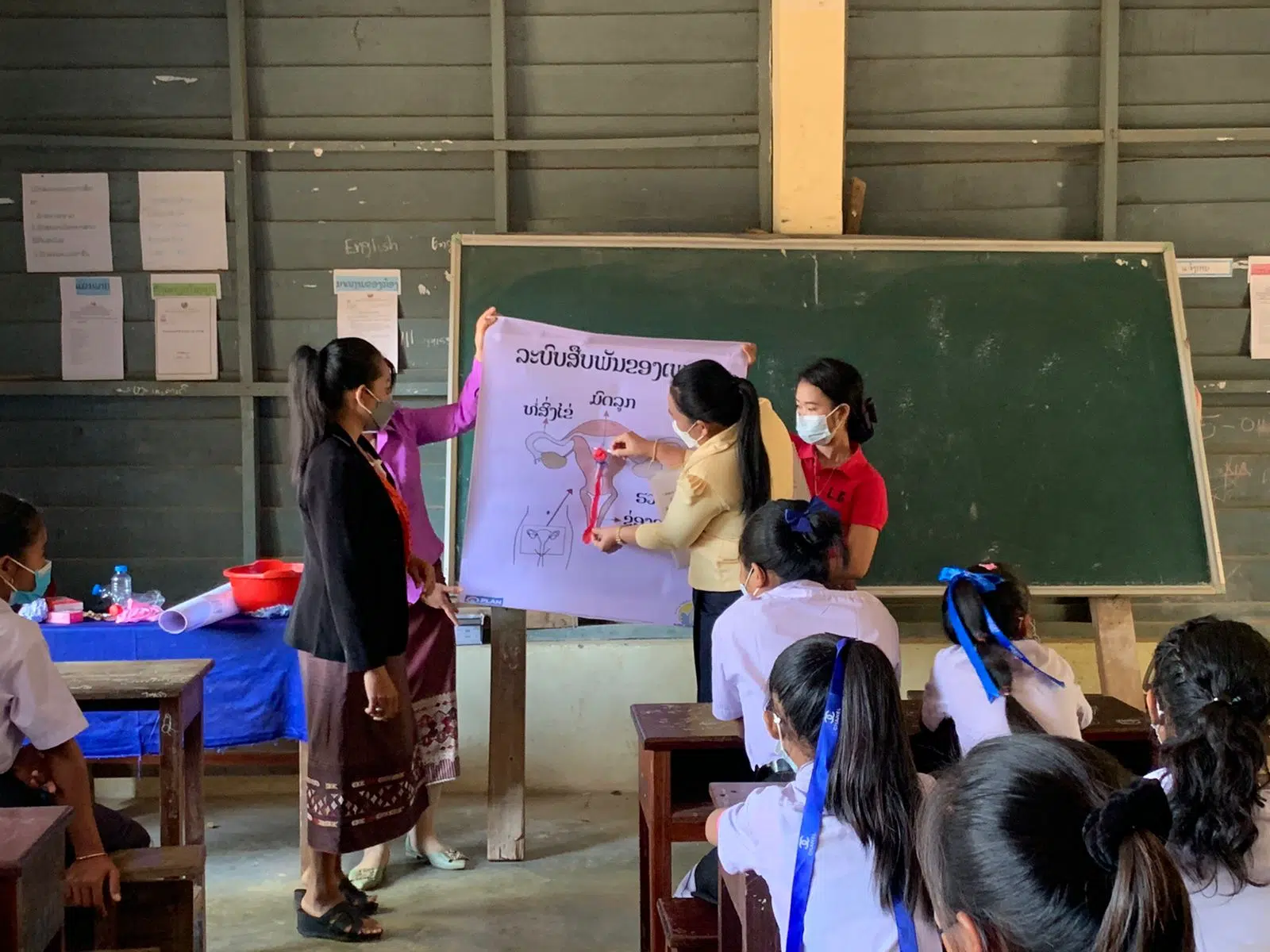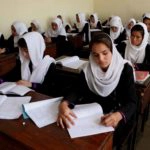Media Centre - Media release - 12 December 2022
Innovative new menstrual health program in Southeast Asia fights period stigma and period poverty – providing financial relief for women as inflation soars in region

A new collaboration between charity for girls’ equality Plan International Australia and sustainable period brand Modibodi has made a huge impact on the menstrual health outcomes for almost 5,000 girls and women in Southeast Asia, empowering them to manage their periods safely, affordably and with dignity.
Over the last three years, a combination of Covid-19 and subsequent worldwide lockdowns, along with widespread inflation and soaring living costs, have exacerbated period poverty – the struggle many low-income women and girls face while trying to afford menstrual products – and the ripple effect of period shame for people who menstruate, creating challenges such as product shortages, price hikes and heightened stigma right across the globe.
These challenges are amplified in remote and difficult to reach regions; many girls in these places have had little access to schooling, therefore missing out on vital sexual and reproductive health and menstrual hygiene information and assistance.
In response to this, Plan International – a leading non-profit organisation working around the world to increase knowledge around menstruation and reduce period stigma, supporting girls to thrive in school and reach their full potential – partnered with Modibodi on a three-month pilot in Indonesia, providing 1,000 pairs of reusable, sustainable menstrual underwear to 333 girls and women in remote part of the archipelago. Delivered alongside Plan International’s menstrual health education programs for girls and boys, the pilot helped break down harmful taboos and attitudes around periods and provided critical information on how to manage periods safely.
An overwhelming majority of participants (99%) said they would continue to use the reusable underwear rather than disposable pads (which can take more than 500 years to biodegrade), with three quarters reporting that the program had made them feel more confident managing their periods.
This year, the successful program was scaled up in rural Laos, where 22,000 pairs of the underwear were delivered to 4,450 adolescent girls and women in secondary schools and health centres across remote villages of Saravan and Oudomxay provinces, as well as women and staff at the Laos Disabled Women’s Development Centre in the capital of Vientiane.
Menstrual health management remains a significant challenge for many Lao women and girls, particularly in the rural north, and the absence of comprehensive menstrual health education in the school curriculum continues to drive period poverty across the country.
Each Modibodi pack distributed contained five pairs of medium flow black period pants, packaged in a small waterproof black bag. A bucket and washing powder were also provided to each recipient.
The vast majority (78%) of the girls and women surveyed rated their experience with the period underwear as ‘five star’, with the remaining 12% rating it four stars.
According to a 2021 study, period poverty, shame and stigma led to 32% of girls skipping school in Laos – who all said they felt fear, shame and guilt when menstruating. However the recipients of the pants founds that, after initial hesitation, they felt more confident to wear their new pants and more comfortable participating in school activities during days they were menstruating. A total of 93% said what they liked most about the product was that it was comfortable while 84% liked that it was leak-proof.
As high inflation sets across Southeast Asia – with the Lao Kip halved in value against the US dollar since April – the cost of living pressures and increases in consumer prices are impacting people across the country. The reusable period pants are providing a lifeline for rural Laos girls , with nearly every woman and girl interviewed over the course of the project mentioned the cost savings and the product had provided them, and 85% said this was in fact what they liked most about the underwear.
A number of girls and women in more remote villages noted the convenience of not having to contend with product shortages. In remote Lanong village, it is not always possible to buy pads in the small village store and cash is limited. Previously, the majority of women interviewed (67%) spent up to 15,000 Lao Kip per month (around AU$2) on pads. After receiving their Modibodi packs, 84% of women had stopped spending on pads – freeing up household income for other essential items.
Twelfth-grade Khmu student, Souvanh Xayaphone found that Modibodi underwear has allowed her to save money that would have been spent on single-use products: “I like Modibodi pants more than normal sanitary pads because they are easy to use, comfortable to wear and cost saving. Every month I spend money around 15,000-25,000 kip (AU$2-4) to buy sanitary pads,” she said.
Bounthan Mekdala, a technical officer with the Laos District Education and Sports Bureau noted that a number of students often did not have enough money to purchase sanitary pads and would subsequently skip classes. “But after receiving these packs, they felt confident to attend school and join in school activities.
To improve access to sexual reproductive health and rights information, Plan International Laos has also been supporting student clubs in secondary schools where members work to spread awareness amongst their peers about gender equality and reproductive health. As a result, 95% of participants said that they are now more comfortable discussing menstruation with their families and friends at school. In these sessions, students learn basic knowledge of menstruation, advantages and disadvantages of disposable sanitation pads, how to manage menstruation, how to track period cycles, how to ease period cramps, and how to care for Modibodi pants.
“Some women and girls have misconceptions about menstruation and reproductive health – an important part of our work is to break these taboos…We explain to the girls that having your period is a natural and normal thing that happens every month – you can eat what you want and do activities as you would normally” said a Plan International Laos Adolescent Project Manager in Oudomxay Province.
“This partnership has shown that reusable menstrual pants are a good solution and could make a real difference to period poverty in Southeast Asia” added Plan International Australia CEO Susanne Legena.
“These girls and women feel safe knowing they can manage their period and have had the financial burden of buying pads lessened. The project has also enabled critical sexual and reproductive health information to reach these girls.
“Our work together with Modibodi is ensuring thousands of girls and women can access safe and sustainable period products, live free from period stigma and participate more fully in daily life – including their education,” she said.
“At Modibodi we are proud to have worked hand in hand with Plan International to further their efforts to bring about global period equality” said Sarah Forde, Modibodi’s Head of Sustainability and Public Affairs.
“In collaboration with the District Education and Sports Bureau and Plan International Laos we have been able to give almost 4,500 female students in Laos reusable period underwear packs. These waterproof packs include five pairs of period pants, made with built-in lining that absorbs blood. These can be easily washed and are able to last years if properly taken care of, presenting a sustainable solution to menstruation in comparison to the disposable pads one must purchase each month.”
Media contacts


